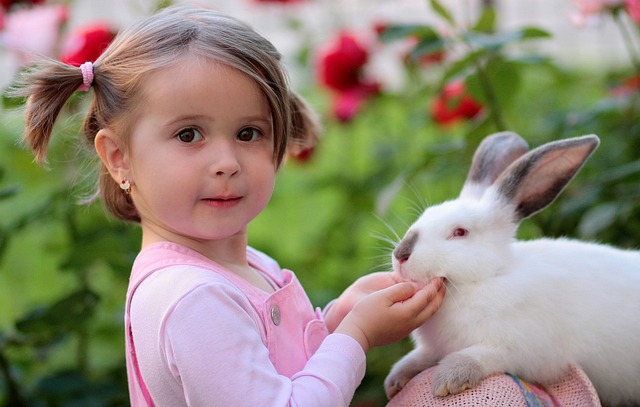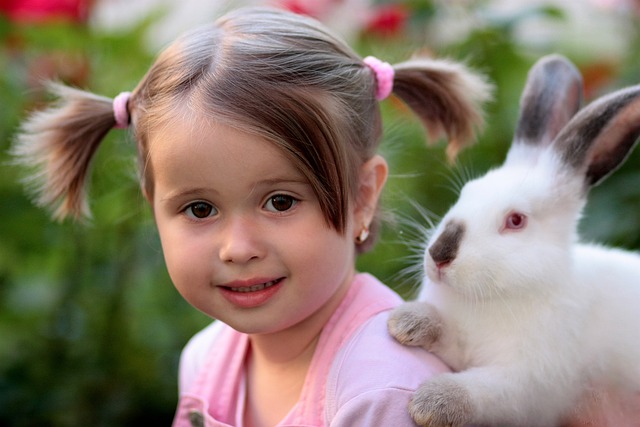Understanding the Emotional Attachment Between Rabbits and Owners

Introduction to Rabbit Ownership
- The Appeal of Rabbits as Pets
- Benefits of Rabbit Ownership
The Complexity of Rabbit Emotions
- Rabbit Emotional Intelligence
- Factors Influencing Rabbit Emotions
Building Trust and Bonding with Your Rabbit
- Creating a Safe and Comfortable Environment
- Establishing Routine and Consistency
Must Read : 7 Reasons Why Rabbits Like to Lay Down With their Heads On the Floor
Understanding Rabbit Body Language
- Interpreting Ear Movements and Posture
- Recognizing Vocalizations and Gestures
Common Behavioral Traits in Bonded Rabbit-Owner Relationships
- Signs of Affection and Trust
- Challenges in Communication and Misunderstandings
Nurturing Emotional Well-being in Rabbits
- The Role of Play and Enrichment
- Handling Stress and Anxiety
Introduction to Rabbit Ownership
- The Appeal of Rabbits as Pets
Rabbits have hopped their way into the hearts of many as adorable and low-maintenance pets. Their fluffy demeanor and inquisitive nature make them a popular choice for animal lovers.

Benefits of Rabbit Ownership
Beyond their cute factor, rabbits offer companionship and a source of joy to their owners. Caring for these furry friends can also bring a sense of fulfillment and responsibility.
The Complexity of Rabbit Emotions
- Rabbit Emotional Intelligence
Don’t be fooled by their twitching noses – rabbits are emotionally intelligent creatures. They can express a range of feelings, from happiness and contentment to fear and anxiety.
- Factors Influencing Rabbit Emotions
Just like us, rabbits’ emotions can be influenced by various factors such as environment, social interactions, and health. Understanding these triggers is key to nurturing a happy bunny.
Building Trust and Bonding with Your Rabbit
- Creating a Safe and Comfortable Environment
To earn your rabbit’s trust, provide a safe and comfortable living space. Offering ample hiding spots, toys, and a litter box can make your furry friend feel secure and at home.
- Establishing Routine and Consistency
Rabbits thrive on routine and predictability. By establishing a consistent schedule for feeding, playtime, and handling, you can strengthen the bond with your bunny companion.
Understanding Rabbit Body Language
- Interpreting Ear Movements and Posture
Rabbits are experts in non-verbal communication, using their ears and body posture to convey their feelings. Perked-up ears indicate curiosity, while a lowered body posture may signal fear or discomfort.
- Recognizing Vocalizations and Gestures
From gentle tooth purring to loud thumping, rabbits have a repertoire of vocalizations and gestures to express themselves. Learning to decode these cues can deepen your understanding of your rabbit’s emotions.
So, hop on board the emotional rollercoaster of rabbit ownership, and get ready to connect on a whole new level with your furry companion!
Rabbits, despite their fluffy exterior and twitchy noses, show affection and trust in surprisingly human-like ways. From binkies (joyful jumps) to gentle nose nudges, these little furballs sure know how to melt your heart. Trust is built over time through consistent care and respect. Yes, rabbits can be picky about their hoomans!
When it comes to communication, rabbits and owners sometimes face challenges. Rabbits can’t speak human (shocking, we know!), so understanding their subtle body language is key. Misunderstandings can happen, but with patience and observation, you’ll be speaking bunny in no time!
Nurturing Emotional Well-being in Rabbits
Playtime isn’t just for kids – rabbits love to play too! Providing enrichment like toys and tunnels keeps them entertained and mentally stimulated. A bored bunny is a recipe for trouble (think chewed-up slippers).
Stress and anxiety in rabbits are no joke. From loud noises to changes in routine, these can seriously ruffle their fur. Creating a calm environment and offering safe spaces to retreat to can help your bunny chill out like a pro.
Recognizing and Responding to Rabbit Emotional Needs
Rabbits are social creatures and need bunny buddies or extra TLC from their human companions to thrive. Addressing loneliness means either getting another rabbit pal (double the trouble, double the fun) or spending quality time bonding with your bunny.
Grief hits rabbits hard, just like it does us. Whether from a loss of a companion or change in environment, rabbits can feel the sadness deeply. Offering comfort, routine, and extra love during tough times can help them hop back on their paws.
Recognizing and Responding to Rabbit Emotional Needs
- Addressing Loneliness and Social Interaction
- Managing Grief and Loss in Rabbits
In conclusion, understanding the emotional attachment between rabbits and their owners is a crucial aspect of responsible rabbit ownership. By recognizing and responding to their emotional needs, building trust and bonding, and nurturing their well-being, owners can cultivate a deep and fulfilling relationship with their rabbit companions. The bond formed between rabbits and their owners is a special one that enriches the lives of both parties and contributes to a harmonious and happy coexistence.
FAQ
- How can I tell if my rabbit is bonded with me?
There are a few signs that can indicate if your rabbit is bonded with you. These include:
1. Grooming behavior: Rabbits groom each other as a way of showing affection and bonding. If your rabbit grooms you, it is a sign that they see you as a companion and are bonded with you.
2. Seeking attention: If your rabbit seeks out your attention and wants to be near you, it is a sign that they are bonded with you. They may nudge you with their nose or hop onto your lap for pets and cuddles.
3. Licking: Similar to grooming, rabbits may also lick their bonded humans as a way of showing affection.
- What are some signs that my rabbit is experiencing stress or anxiety?
1. Changes in behavior: A stressed or anxious rabbit may show changes in their behavior such as being more aggressive, hiding, or becoming more withdrawn.
2. Decreased appetite: If your rabbit suddenly stops eating or shows a decrease in appetite, it could be a sign of stress or anxiety.
3. Excessive grooming: Rabbits may groom themselves as a way to cope with stress, but excessive grooming can lead to hair loss or skin irritation.
- How can I help my rabbit cope with grief or loss?
1. Provide comfort and support: Just like humans, rabbits also need comfort and support during times of grief or loss. Spend extra time with your rabbit, cuddle and stroke them to help alleviate their stress and anxiety.
2. Keep their routine consistent: Rabbits thrive on routine, so try to keep their daily routine as consistent as possible. This will provide a sense of stability and security for your rabbit during a difficult time.
3. Offer familiar scents: Rabbits have a strong sense of smell and familiar scents can provide them with comfort. You can place a small piece of clothing or blanket with your scent in their living area to help them feel more at ease.
4. Provide a safe and quiet space: It’s important to give your rabbit a safe and quiet space where they can retreat and feel secure. This could be a covered area of their enclosure or a separate room where they can have some alone time.
What do you think?
Show comments / Leave a comment